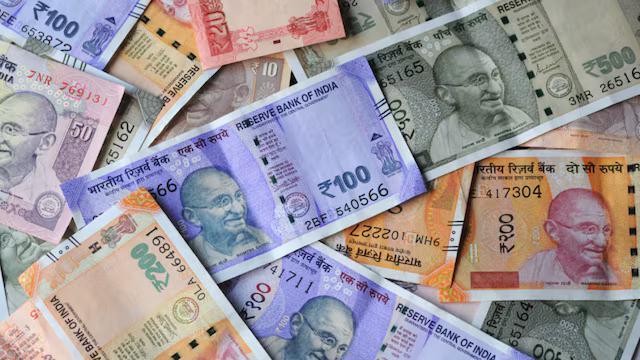
Govt Seeks 10,000 kg Banknote Security Ink; Firms with China, Pak Links Barred from Bidding
In a significant move to ensure the security and integrity of its banknotes, the Indian government has issued a tender for nearly 10,000 kg of color security pigment used to print currency notes. However, what sets this tender apart is the stipulation that the company bidding for the contract must have no links whatsoever with China or Pakistan.
According to a report by News18, the government has made it clear that the company selected for the project will not have any employee who has previously worked in Pakistan or China, and the company itself must not have any business ties or connections with these countries.
The tender, which is expected to be a highly competitive process, is for the supply of 10,000 kg of color security pigment, also known as security ink, which is used to print banknotes. The security ink is a critical component of the banknote printing process, as it provides the unique features and security threads that make it difficult for counterfeiters to replicate.
The government’s decision to exclude companies with links to China and Pakistan is seen as a move to ensure the security and integrity of the country’s currency. Both China and Pakistan have been accused of supporting terrorism and other illegal activities, and the government may be wary of allowing companies with ties to these countries to have access to sensitive information and technology.
The tender process is expected to attract bids from companies around the world, and the government is expected to select the best bidder based on a range of criteria, including the quality of the security ink, the company’s experience and reputation, and its ability to deliver the product on time.
The decision to exclude companies with links to China and Pakistan is also seen as a move to promote domestic industries and create jobs in the country. By giving preference to Indian companies or companies with no links to China or Pakistan, the government may be able to stimulate economic growth and development in the country.
The government’s decision to exclude companies with links to China and Pakistan is also seen as a move to promote transparency and accountability. By ensuring that the company bidding for the contract has no conflicts of interest or ties to countries with questionable human rights records, the government can ensure that the project is carried out in a transparent and accountable manner.
In recent years, there have been concerns about the security and integrity of the Indian currency. With the rise of digital payments and e-wallets, the use of cash has decreased, but there are still many people who rely on physical currency for their daily transactions. As a result, the government has been taking steps to ensure the security and integrity of the currency, including the use of advanced security features and the printing of new currency notes.
The government’s decision to exclude companies with links to China and Pakistan is also seen as a move to promote regional security. By ensuring that the company bidding for the contract has no ties to countries with questionable human rights records, the government can ensure that the project is carried out in a way that promotes regional stability and security.
In conclusion, the government’s decision to seek 10,000 kg of color security pigment for banknote printing, with a stipulation that the company must have no links to China or Pakistan, is a significant move to ensure the security and integrity of the country’s currency. The decision is seen as a move to promote domestic industries, create jobs, and ensure transparency and accountability. As the country moves towards a cashless economy, it is essential to ensure that the currency is secure and trustworthy, and the government’s decision is a step in the right direction.
Source:
https://www.news18.com/amp/india/do-firm-cant-have-china-pak-links-exclusive-9459169.html






